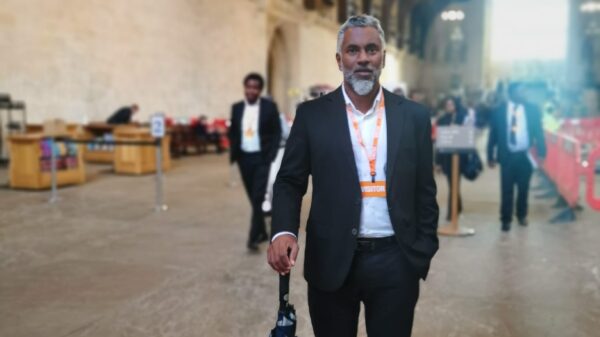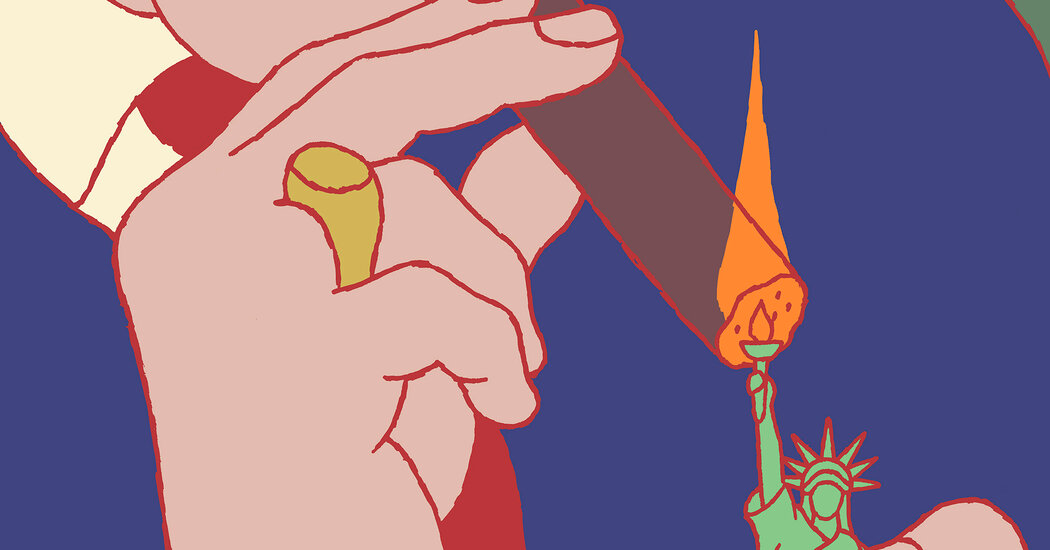It would seem there is a lot of “freedom” being trumpeted by state officials these days.
Within hours of becoming governor of Virginia, Glenn Youngkin signed an executive order to ban the teaching of critical race theory, explaining that the state must promote “freedom of thought.” He then moved to lift mask mandates in public schools, citing “individual liberty.” In mid-January, Florida lawmakers debated an “individual freedom” bill that would limit discussions about race and discrimination in schools and businesses.
Around the same time, conservative politicians in Georgia created a Freedom Caucus that seeks to, among other things, keep “dangerous ideology” out of schools. And, in Iowa, a Parental Freedom in Education Act would have allowed parents to prevent children from learning anything they find objectionable, inspect teachers’ curriculum and lesson plans at any time and challenge mask mandates. (The bill was rejected in the Iowa Senate.)
Each of these actions used the language of freedom to justify anti-democratic politics. These, then, are what I call “ugly freedoms”: used to block the teaching of certain ideas, diminish employees ability to have power in the workplace and undermine public health.
These are not merely misunderstood freedoms, or even just a cynical use of the language of freedom to frame bigoted policies. They manifest, instead, a particular interpretation of freedom that is not expansive, but exclusionary and coercive.
Indeed, there is a long history of ugly freedoms in this country. From the start of the American experiment the language of freedom applied only to a privileged few. At the time of the Constitutional Convention in Philadelphia, only 2 percent of the city’s population were qualified to vote. Slave codes allowed white property owners to possess Black humans — creating what the historian Tyler Stovall called “white freedom,” the “belief (and practice) that freedom is central to white racial identity, and that only white people can or should be free.” This freedom for the white master extended to torture, rape and lifelong control over the humans he (or she) owned.
In early American history, claims for men’s freedom permitted domestic violence against women, and a husband’s prerogative and privacy allowed him to beat his wife. In 1827 the jurist and legal scholar James Kent argued on behalf of husbands: “The law has given him a reasonable superiority and control over” the person of his wife, he wrote. “He may even put gentle restraints upon her liberty, if her conduct be such as to require it.” In other words: a woman’s freedom was at the discretion of her husband.
In the 20th century, racial segregation was justified as the freedom of white people to control public space and make their own business choices. In his infamous 1963 inaugural speech on segregation, Gov. George Wallace of Alabama couched his stance against integration as “our fight for freedom,” and justified it as “the ideology of our free fathers.” We can call that ideology white supremacy.
These are but a few examples of how claims for “freedom” have long suppressed the rights of nonwhites, women and workers. It is true the language of freedom was central to emancipation, suffrage and democratic movements of all kinds, but it has also justified violence and discrimination.
Today, more and more laws, caucuses, rallies and hard-right movements use the language of freedom as a cudgel to erode democratic governance and civil rights; these laws expand the creep of authoritarianism. One Jan. 6 insurrectionist insisted, “I’m here for freedom,” when describing his participation in the attack on the Capitol. Mask mandate opponents have cited “health freedom,” even if their refusal to mask denies freedom of movement to immunocompromised people and makes communities more vulnerable to Covid.
The frenzy of ugly freedoms in anti-democratic politics threatens to overtake freedom’s meaning entirely, harnessing freedom solely to projects of exclusion, privilege and harm.
Still, today we can also see vibrant political movements and legislation reclaiming freedom as a right for all. These freedoms expand Americans’ abilities to both live a flourishing life and participate in public affairs.
This inclusive freedom sometimes takes shape in legislative acts. The Freedom to Vote Act and the John Lewis Voting Rights Advancement Act would have promoted just this type of freedom. The bills ambitiously aimed to increase voting access by making Election Day a federal holiday (thus freeing workers to get to the polls), improving voting by mail, increasing transparency in campaign finance, and expanding protections for minority voters. By making it easier for all Americans to vote, it promoted a form of freedom that expands rather than contracts democracy, as it insists that freedom means all Americans must have equal power to shape governing systems.
Yet the legislation was blocked by Republicans last month. Some of those same Republicans actively support voter suppression laws in their home states that enable partisan interference in elections and place burdens on poor and minority voters.
In January, New Jersey had a more successful reclamation of freedom with the passage of the Freedom of Reproductive Choice Act. This law broadly ensures that women maintain control over reproduction and childbearing, guaranteeing this freedom before it may be lost at the federal level when the Supreme Court rules in Dobbs v. Jackson’s Women’s Health Organization this year. The act draws on the language of freedom to ensure women’s capacity to make decisions about birth control, abortion and pregnancy, promoting a form of freedom in which people determine their own futures regarding childbearing. (Unfortunately the bill, in its final iteration, did not remove cost barriers for abortion, thus making it harder for lower-income women to attain that freedom.)
To be sure, efforts to counter ugly freedoms are not limited to legislative actions. They include unionization efforts that fight for freedom in the workplace. And they extend to robust social movements that organize for Black, transgender and disability freedoms. These movements articulate a democratic language of freedom that challenge structures of privilege that allow some Americans undue power over others, and they expand citizens’ access to governing power.
The ugly freedoms in American politics today increasingly justify minority rule, prejudice and anti-democratic governance. If we don’t push back against their growing popularity, we will have ceded what freedom means to those who support monopolistic rule and furthered the country’s downward slide toward authoritarianism. Creating and supporting democratic alternatives to ugly freedom, both in legislatures and on the streets, is an urgent task for all who value equality, community health and the shared power to construct a free society that truly values all its members.
Elisabeth Anker (@LibAnkerDC) is a professor of American studies at George Washington University, the author of “Ugly Freedoms” and a co-editor of the journal Theory & Event.
The Times is committed to publishing a diversity of letters to the editor. We’d like to hear what you think about this or any of our articles. Here are some tips. And here’s our email: letters@nytimes.com.
Follow The New York Times Opinion section on Facebook, Twitter (@NYTopinion) and Instagram.


























